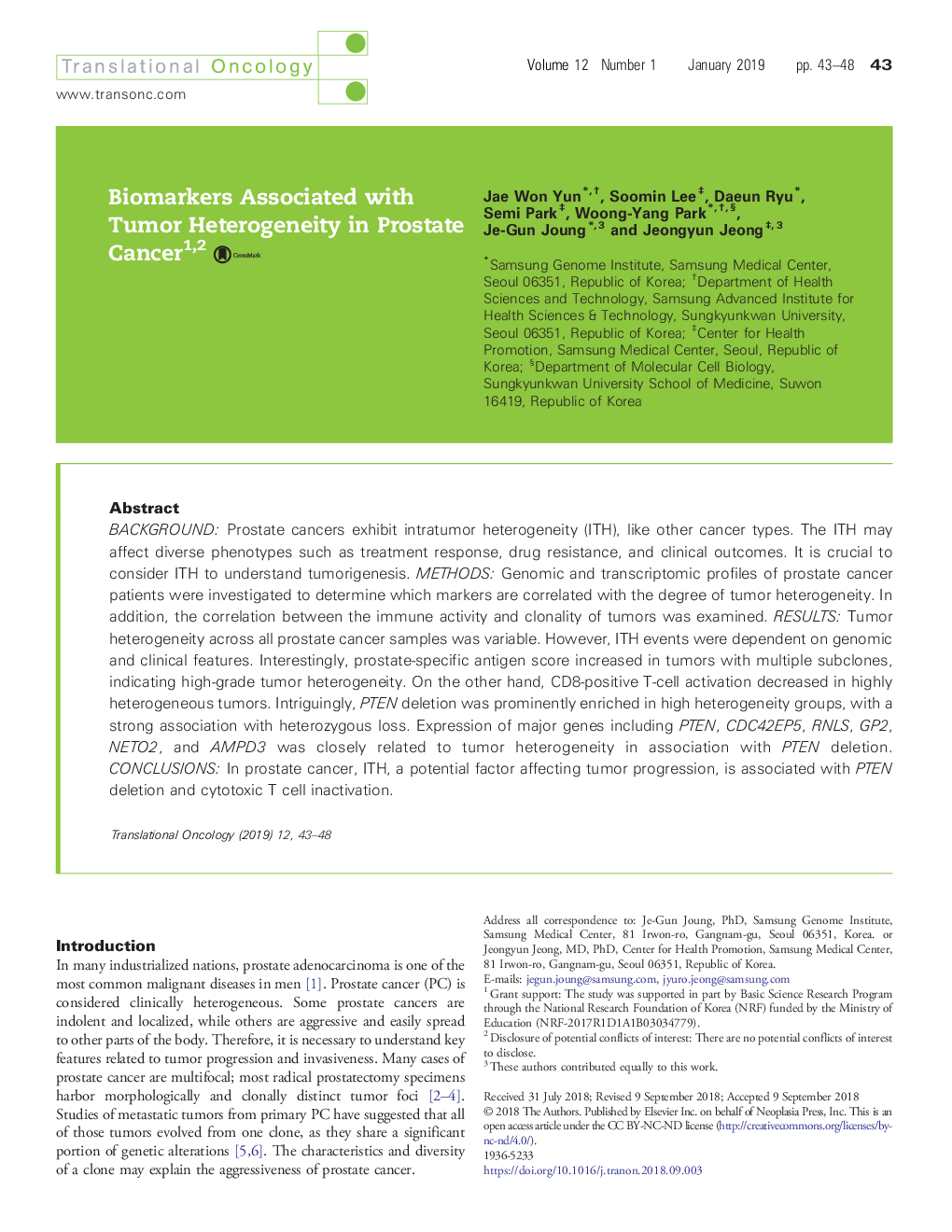| Article ID | Journal | Published Year | Pages | File Type |
|---|---|---|---|---|
| 11025900 | Translational Oncology | 2019 | 6 Pages |
Abstract
BACKGROUND: Prostate cancers exhibit intratumor heterogeneity (ITH), like other cancer types. The ITH may affect diverse phenotypes such as treatment response, drug resistance, and clinical outcomes. It is crucial to consider ITH to understand tumorigenesis. METHODS: Genomic and transcriptomic profiles of prostate cancer patients were investigated to determine which markers are correlated with the degree of tumor heterogeneity. In addition, the correlation between the immune activity and clonality of tumors was examined. RESULTS: Tumor heterogeneity across all prostate cancer samples was variable. However, ITH events were dependent on genomic and clinical features. Interestingly, prostate-specific antigen score increased in tumors with multiple subclones, indicating high-grade tumor heterogeneity. On the other hand, CD8-positive T-cell activation decreased in highly heterogeneous tumors. Intriguingly, PTEN deletion was prominently enriched in high heterogeneity groups, with a strong association with heterozygous loss. Expression of major genes including PTEN, CDC42EP5, RNLS, GP2, NETO2, and AMPD3 was closely related to tumor heterogeneity in association with PTEN deletion. CONCLUSIONS: In prostate cancer, ITH, a potential factor affecting tumor progression, is associated with PTEN deletion and cytotoxic T cell inactivation.
Related Topics
Life Sciences
Biochemistry, Genetics and Molecular Biology
Cancer Research
Authors
Jae Won Yun, Soomin Lee, Daeun Ryu, Semi Park, Woong-Yang Park, Je-Gun Joung, Jeongyun Jeong,
